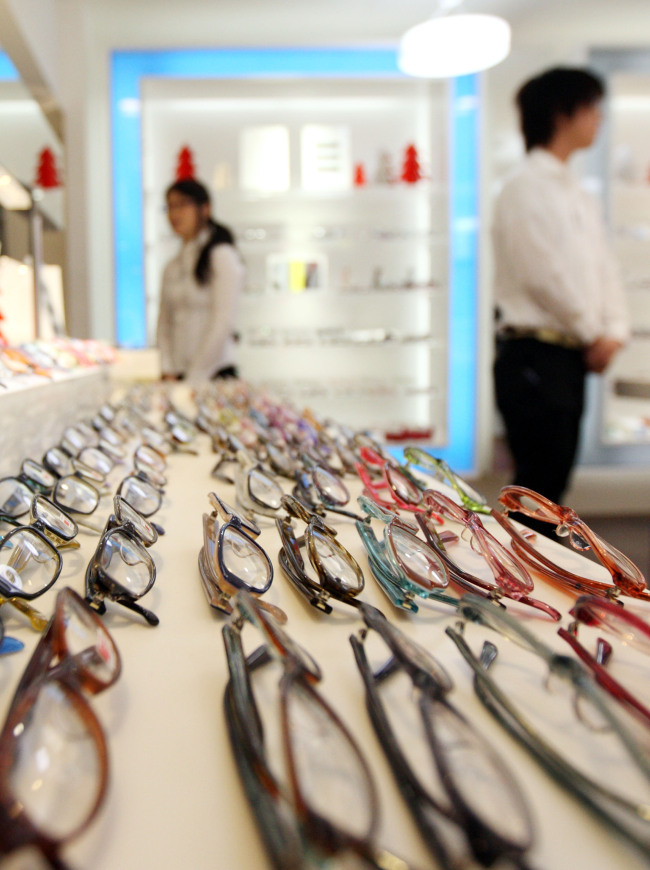Watchdog blocks eyewear merger
FTC says merger between French giant and local firm would harm competition
By Korea HeraldPublished : March 17, 2014 - 21:12
The nation’s antitrust regulator is challenging the merger of French eyewear conglomerate Essilor International and Daemyung Optical, the country’s largest lens-manufacturing firm, on concerns that it would damage competition in the market.
The Fair Trade Commission also indicated that it was wary of possible market domination by a foreign manufacturer, a move that may run counter to President Park Geun-hye’s calls to invite in more foreign investment.
On Monday, the FTC said it had refused to allow Essilor to acquire the Korean company, citing that the acquisition of two leading lens companies would restrict free competition and push up prices.
The Fair Trade Commission also indicated that it was wary of possible market domination by a foreign manufacturer, a move that may run counter to President Park Geun-hye’s calls to invite in more foreign investment.
On Monday, the FTC said it had refused to allow Essilor to acquire the Korean company, citing that the acquisition of two leading lens companies would restrict free competition and push up prices.

“We ruled that the M&A may hurt the price competiveness of the local lens market and result in the French firm controlling the retail prices of certain products,” an FTC official said.
The decision comes nearly 12 months after the French firm sought approval for the purchase from the FTC in March in 2013.
Earlier that year, Essilor announced that it had agreed with Daemyung to acquire a controlling 50 percent of its shares.
Market watchers say the recent decision is a reflection of the antitrust agency’s determination to strengthen regulations against multinational companies, including their merger and acquisition transactions.
Korea’s wholesale market for eyeglass lenses was worth 150 billion won ($140 million) as of 2012, and Essilor International’s market share, including those of its Korean unit Essilor Korea, accounted for 37.2 percent, according to the FTC.
Essilor was followed by Daemyung and Japan’s Hoya Corporation with 27 percent and 17.1 percent, respectively.
The merger would have given the French firm a 60 percent market share. The FTC raised concerns that the merger could force up the prices of certain products, especially single vision lenses and progressive spectacles or varifocal lenses ― the French and Korean firm already dominates with a combined market share of more than 60 percent for single vision lenses.
By Oh Kyu-wook (596story@heraldcorp.com)
-
Articles by Korea Herald



![[Exclusive] Korean military set to ban iPhones over 'security' concerns](http://res.heraldm.com/phpwas/restmb_idxmake.php?idx=644&simg=/content/image/2024/04/23/20240423050599_0.jpg&u=20240423183955)




![[Herald Interview] 'Amid aging population, Korea to invite more young professionals from overseas'](http://res.heraldm.com/phpwas/restmb_idxmake.php?idx=644&simg=/content/image/2024/04/24/20240424050844_0.jpg&u=20240424200058)

![[Pressure points] Leggings in public: Fashion statement or social faux pas?](http://res.heraldm.com/phpwas/restmb_idxmake.php?idx=644&simg=/content/image/2024/04/23/20240423050669_0.jpg&u=)









